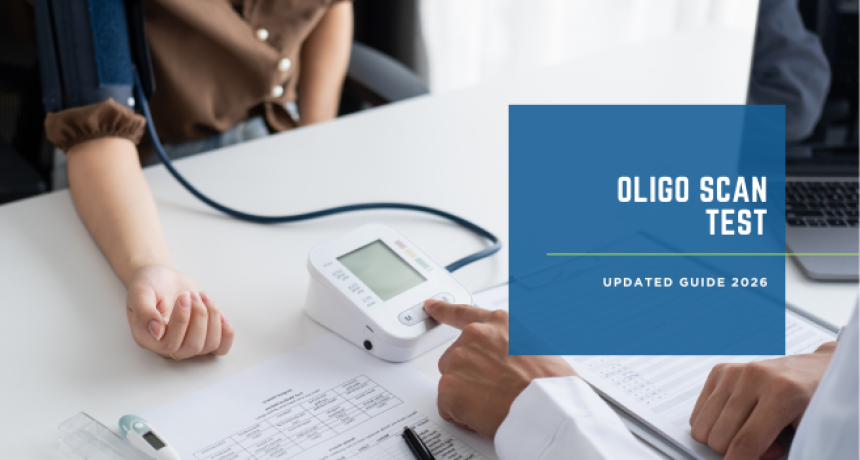Vegetarian Low-Calorie Meal Plan: A Complete Guide for Weight Loss & Health
2025-02-19 A vegetarian low-calorie meal plan is an excellent way to lose weight, boost energy, and enhance overall health. Whether you're looking to shed extra pounds, maintain a balanced diet, or improve immunity, a well-planned vegetarian diet can provide all the necessary nutrients while keeping calorie intake in check. In this guide, we’ll explore the benefits, meal planning strategies, a full 7-day vegetarian low-calorie meal plan, and essential tips to make your journey enjoyable and sustainable. A vegetarian diet is not just about avoiding meat—it’s about embracing nutrient-rich, plant-based foods that support overall well-being. ✔ Supports Weight Loss: A calorie-controlled vegetarian diet helps in fat loss while providing essential nutrients. When following a low-calorie vegetarian diet, it’s important to choose foods wisely to ensure you’re getting enough protein, healthy fats, fiber, and essential vitamins. 1️⃣ Lean Protein: Lentils, chickpeas, tofu, paneer, Greek yogurt, quinoa These foods are nutrient-dense yet low in calories, making them perfect for weight loss and maintaining health: Leafy Greens – Spinach, kale, lettuce (low in calories, rich in vitamins) Cruciferous Vegetables – Broccoli, cauliflower, cabbage (high fiber, low-calorie) Mushrooms – Great for adding umami flavor without extra calories Legumes – Lentils, chickpeas, black beans (excellent plant-based protein) Whole Grains – Quinoa, brown rice, oats (provide sustained energy) Greek Yogurt – High in protein and probiotics, great for digestion Berries – Antioxidant-rich and naturally low in sugar Here’s a balanced, nutritious, and easy-to-follow vegetarian meal plan that’s low in calories yet high in essential nutrients. 🥣 Breakfast: Overnight oats with chia seeds and berries (250 kcal) 🥣 Breakfast: Greek yogurt with flaxseeds and walnuts (300 kcal) 🥣 Breakfast: Scrambled paneer with multigrain toast (280 kcal) 🥣 Breakfast: Smoothie with banana, spinach, and almond milk (250 kcal) 🥣 Breakfast: Poha with peanuts and turmeric (300 kcal) 🥣 Breakfast: Besan chilla with mint chutney (290 kcal) 🥣 Breakfast: Fruit and nut smoothie bowl (280 kcal) Protein is essential for muscle maintenance and appetite control. Include lentils, tofu, paneer, quinoa, Greek yogurt, and nuts in your meals. Even healthy foods can lead to weight gain if consumed in excess. Use portion control techniques like measuring servings and mindful eating. Staying hydrated helps in digestion, metabolism, and detoxification. Aim for 8-10 glasses of water daily. Stay away from processed snacks, sugary cereals, and refined carbs, which can cause blood sugar spikes and cravings. A low-calorie diet works best when combined with regular exercise. Aim for strength training, yoga, or brisk walking at least 30 minutes daily. Stabilize your blood sugar and optimize your health with a Low Glycemic Diet! Learn the secrets to balanced nutrition. Read now! At Longevity & Beyond, we specialize in personalized nutrition plans that help you achieve weight loss, improved immunity, and long-term well-being. Whether you’re looking for a structured meal plan, supplement guidance, or holistic wellness coaching in delhi , we provide tailored solutions for your needs. 💡 Get a Custom Meal Plan for Your Weight Loss Goals A vegetarian low-calorie meal plan can be a game-changer for your health. By focusing on nutrient-rich foods, portion control, and a balanced lifestyle, you can achieve sustainable weight loss, improved digestion, and overall wellness. Start your healthy eating journey today—your body will thank you! Yes! Excellent plant-based protein sources include lentils, chickpeas, tofu, paneer, quinoa, Greek yogurt, nuts, and seeds. These foods provide the essential amino acids needed for muscle maintenance and overall health. Caloric needs vary by individual, but for healthy weight loss, a calorie intake of 1,200–1,500 kcal per day is generally effective. However, it’s best to consult a nutritionist for personalized guidance. Healthy low-calorie vegetarian snacks include: Roasted fox nuts (makhana) Greek yogurt with berries Carrot and cucumber sticks with hummus Handful of almonds or walnuts Apple slices with peanut butter Yes! A vegetarian low-calorie meal plan can help regulate blood sugar levels. Opt for whole grains, fiber-rich vegetables, and lean proteins while avoiding refined carbs and added sugars. Vegetarians may need additional Vitamin B12, Omega-3 (from algae), Vitamin D, Iron, and Zinc supplements to meet their nutritional needs. Consult a healthcare professional before starting any supplements.Why Choose a Vegetarian Low-Calorie Meal Plan?

Benefits of a Vegetarian Low-Calorie Meal Plan
✔ Boosts Immunity: A diet rich in antioxidants, vitamins, and minerals strengthens immune function.
✔ Enhances Digestion: Fiber-rich vegetarian foods promote better gut health and prevent bloating.
✔ Reduces Disease Risk: A plant-based diet lowers the risk of heart disease, diabetes, and high blood pressure.
✔ Increases Energy Levels: Nutrient-dense meals provide sustained energy throughout the day.How to Plan a Vegetarian Low-Calorie Meal Plan?
Key Components of a Healthy Vegetarian Low-Calorie Meal Plan
2️⃣ Healthy Fats: Nuts, seeds, olive oil, avocado (in moderation)
3️⃣ Complex Carbohydrates: Brown rice, whole wheat, oats, quinoa
4️⃣ Fiber-Rich Vegetables: Leafy greens, broccoli, bell peppers, carrots
5️⃣ Low-Calorie Fruits: Berries, apples, citrus fruits, watermelon
6️⃣ Superfoods for Immunity: Turmeric, ginger, garlic, flaxseeds, chia seedsBest Low-Calorie Vegetarian Foods
7-Day Vegetarian Low-Calorie Meal Plan
Day 1
🥗 Lunch: Quinoa salad with chickpeas, cucumber, and lemon dressing (350 kcal)
🥑 Snack: Roasted fox nuts (makhana) with green tea (150 kcal)
🥘 Dinner: Stir-fried tofu with sautéed spinach and garlic (400 kcal)Day 2
🥗 Lunch: Whole wheat roti with dal and steamed veggies (350 kcal)
🥑 Snack: Apple slices with peanut butter (180 kcal)
🥘 Dinner: Mixed vegetable soup with lentil pancakes (400 kcal)Day 3
🥗 Lunch: Millet bowl with sautéed mushrooms and greens (370 kcal)
🥑 Snack: Cucumber and hummus (150 kcal)
🥘 Dinner: Vegetable stir-fry with brown rice (420 kcal)Day 4
🥗 Lunch: Chia pudding with nuts and fresh fruit (350 kcal)
🥑 Snack: Handful of almonds and walnuts (180 kcal)
🥘 Dinner: Grilled paneer with roasted vegetables (410 kcal)Day 5
🥗 Lunch: Lentil and vegetable curry with quinoa (350 kcal)
🥑 Snack: Roasted sunflower seeds and herbal tea (150 kcal)
🥘 Dinner: Miso soup with tofu and steamed broccoli (380 kcal)Day 6
🥗 Lunch: Chickpea and avocado wrap with whole wheat tortilla (360 kcal)
🥑 Snack: Yogurt with a drizzle of honey and chia seeds (180 kcal)
🥘 Dinner: Spinach and cottage cheese soup with whole grain crackers (400 kcal)Day 7
🥗 Lunch: Brown rice with vegetable curry and salad (350 kcal)
🥑 Snack: Carrot sticks with hummus (150 kcal)
🥘 Dinner: Roasted eggplant with tomato sauce and quinoa (400 kcal)Additional Tips for Success on a Vegetarian Low-Calorie Meal Plan

1️⃣ Focus on Protein-Rich Foods
2️⃣ Control Portion Sizes
3️⃣ Drink Plenty of Water
4️⃣ Avoid Processed and Sugary Foods
5️⃣ Incorporate Exercise & Movement
Holistic Health with Longevity & Beyond
Ready to Take Charge of Your Health?
📞 Book a Consultation with Our Nutrition Experts Today!
🌱 Achieve Sustainable Health with Natural, Whole Foods
Final Thoughts
Frequently Asked Questions (FAQs)
1. Can I get enough protein on a vegetarian low-calorie diet?
2. How many calories should I eat per day for weight loss?
3. What are the best snacks on a vegetarian low-calorie diet?
4. Can I follow this meal plan if I have diabetes?
5. What are the best supplements for a vegetarian diet?
.png)















